
The Enchanting Munich Countryside: Bavaria's Hidden Gem
Nestled in the heart of Bavaria, the Munich countryside is a picturesque escape from the bustling city life. Rolling hills, lush meadows, and charming villages await you in this serene landscape. As you explore, you'll find yourself surrounded by vibrant fields, traditional Bavarian farms, and historic castles that tell stories of a bygone era. The Munich countryside offers a rich cultural experience with its local festivals, traditional Bavarian cuisine, and warm hospitality. Visit a local beer garden for a taste of freshly brewed beer and hearty German dishes. Don't miss the opportunity to explore the region's many hiking and biking trails, which provide stunning views of the Alps and the idyllic countryside. One of the highlights of the Munich countryside is the Neuschwanstein Castle, a fairy tale fortress that inspired Disney's Sleeping Beauty Castle. The nearby town of Füssen is also worth a visit, with its cobblestone streets and medieval architecture. Whether you're seeking adventure, relaxation, or a glimpse into Germany's rich history, the Munich countryside has something to offer every traveler.
Local tips in Munich Countryside
- Visit during the spring or fall for the best weather and fewer crowds.
- Rent a bike to explore the countryside at your own pace.
- Try to learn a few basic German phrases; locals appreciate the effort.
- Check out local events and festivals for an authentic Bavarian experience.
- Book castle tours in advance to avoid long lines.
The Enchanting Munich Countryside: Bavaria's Hidden Gem
Nestled in the heart of Bavaria, the Munich countryside is a picturesque escape from the bustling city life. Rolling hills, lush meadows, and charming villages await you in this serene landscape. As you explore, you'll find yourself surrounded by vibrant fields, traditional Bavarian farms, and historic castles that tell stories of a bygone era. The Munich countryside offers a rich cultural experience with its local festivals, traditional Bavarian cuisine, and warm hospitality. Visit a local beer garden for a taste of freshly brewed beer and hearty German dishes. Don't miss the opportunity to explore the region's many hiking and biking trails, which provide stunning views of the Alps and the idyllic countryside. One of the highlights of the Munich countryside is the Neuschwanstein Castle, a fairy tale fortress that inspired Disney's Sleeping Beauty Castle. The nearby town of Füssen is also worth a visit, with its cobblestone streets and medieval architecture. Whether you're seeking adventure, relaxation, or a glimpse into Germany's rich history, the Munich countryside has something to offer every traveler.
When is the best time to go to Munich Countryside?
Iconic landmarks you can’t miss
Marienplatz
Experience the heart of Munich at Marienplatz, a historic square brimming with architectural wonders, cultural events, and Bavarian charm, easily accessible and a perfect starting point for city exploration.
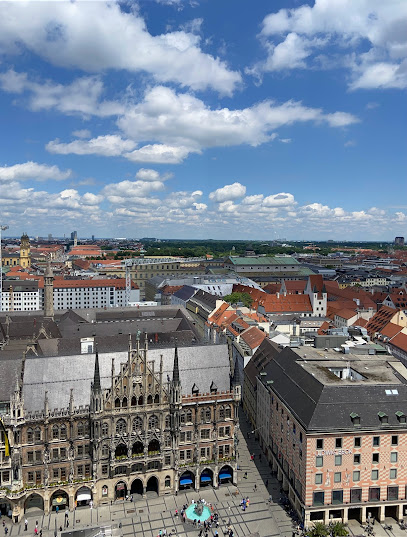
Olympiapark München
Explore Munich's iconic Olympic Park: a vibrant hub of sports, culture, and recreation, offering stunning views and a rich history for an unforgettable experience.
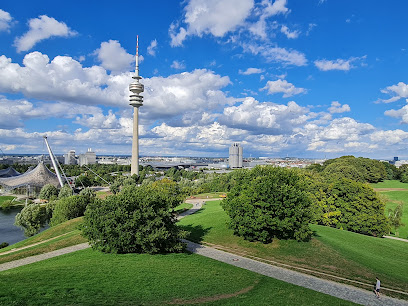
English Garden
Discover Munich's expansive English Garden: a vibrant urban oasis blending natural beauty, iconic landmarks, and Bavarian charm for an unforgettable experience.
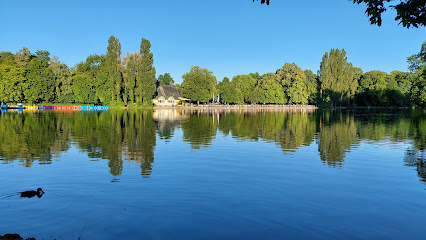
Nymphenburg Palace
Discover the grandeur of Bavarian royalty at Nymphenburg Palace, a stunning Baroque palace with opulent interiors and sprawling gardens, offering a glimpse into a regal past.
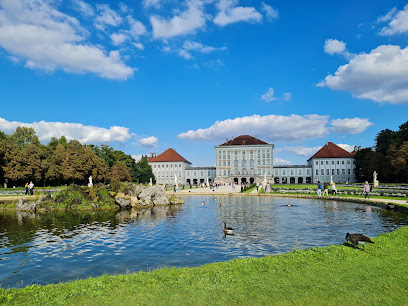
Munich Residence
Explore Germany's largest city palace, the Munich Residence, a captivating blend of royal history, stunning art, and architectural grandeur in the heart of Munich's old town.
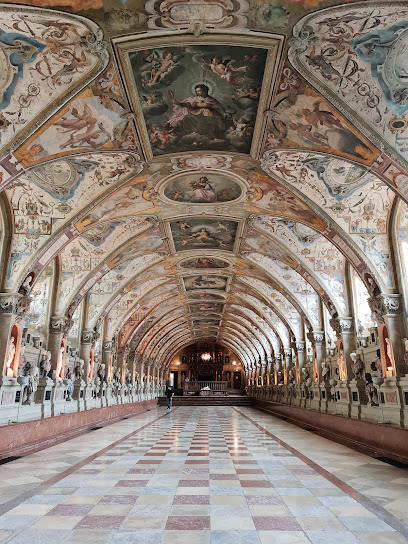
Frauenkirche
Discover Munich's iconic Frauenkirche, a symbol of resilience with stunning Gothic architecture, the legendary Devil's Footprint, and panoramic city views from its historic towers.
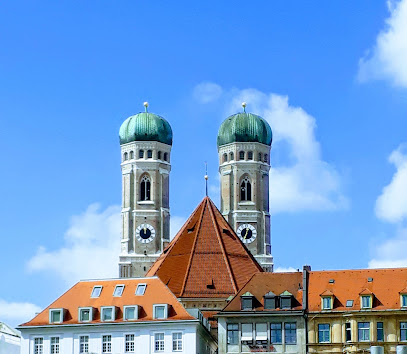
Hofgarten
Escape to Munich's historic Hofgarten, a tranquil Italian Renaissance garden in the city center, offering beauty, history, and a peaceful retreat for locals and tourists alike.
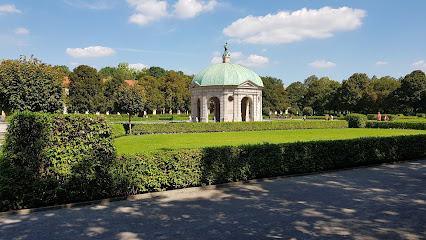
Schleissheim palace complex
Discover the grandeur of Bavarian royalty at Schleissheim Palace Complex, a stunning Baroque estate featuring opulent palaces, exquisite art collections, and meticulously designed gardens near Munich.
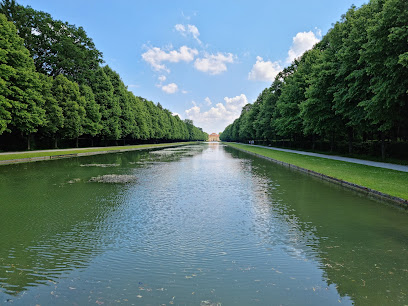
Unmissable attractions to see
Marienplatz
Discover Marienplatz, Munich's iconic square, where history, culture, and Bavarian charm come together in a vibrant atmosphere.
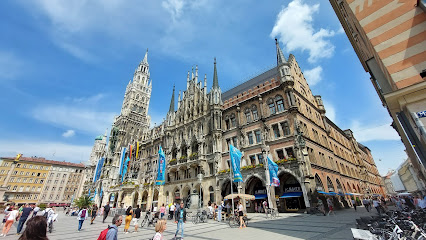
Schlosspark Nymphenburg
Explore the stunning Schlosspark Nymphenburg, a serene blend of nature and history in the heart of Munich, perfect for leisurely strolls and picturesque views.
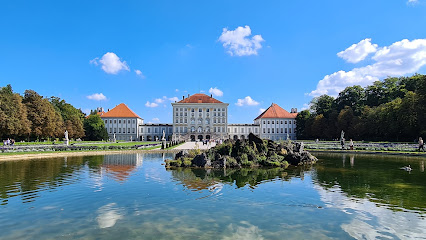
Odeonsplatz
Discover Odeonsplatz, a historic square in Munich rich in culture and architectural beauty, perfect for tourists seeking to experience Bavarian heritage.
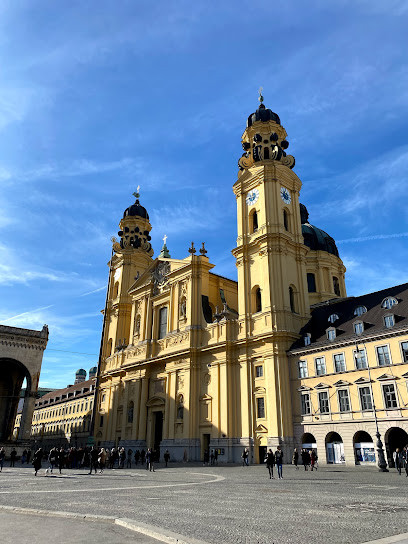
Eisbachwelle
Experience the thrill of urban surfing at Eisbachwelle in Munich, a unique attraction blending adventure sports and stunning park scenery.
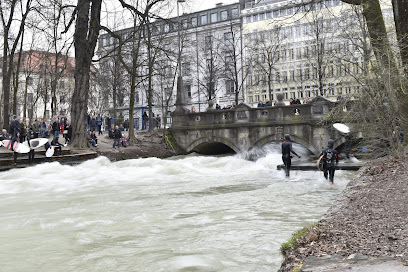
Hofgarten
Explore the serene Hofgarten in Munich, a historic park blending lush landscapes, vibrant culture, and artistic beauty in the heart of the city.
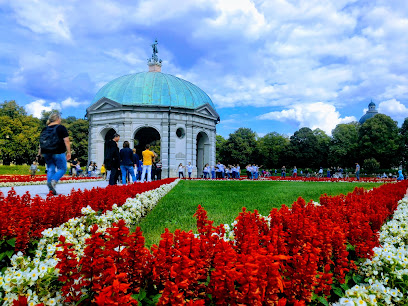
FC Bayern Museum
Delve into the rich history of FC Bayern Munich at the FC Bayern Museum, a must-visit for football fans and tourists in Munich.
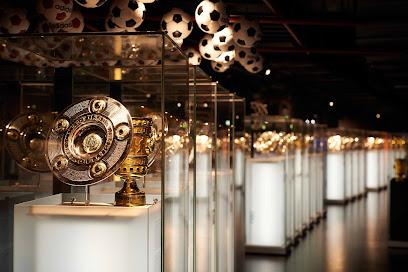
Botanical Garden Munich-Nymphenburg
Discover the enchanting Botanical Garden Munich-Nymphenburg, a lush paradise showcasing diverse flora and serene landscapes in the heart of Munich.
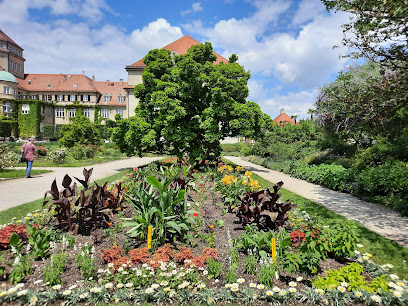
Bavaria Filmstadt
Experience the magic of cinema at Bavaria Filmstadt, where movie sets come to life and adventure awaits every corner.
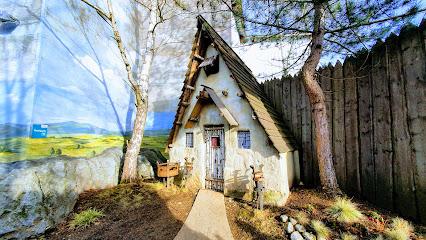
Fünf Höfe
Explore Fünf Höfe in Munich for an exceptional blend of shopping, art, and dining within a stunning architectural setting.
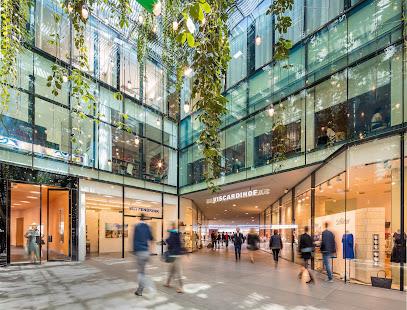
Schleissheim palace complex
Discover the enchanting Schleissheim Palace Complex, a stunning castle and garden oasis that reveals the royal heritage of Bavaria near Munich.
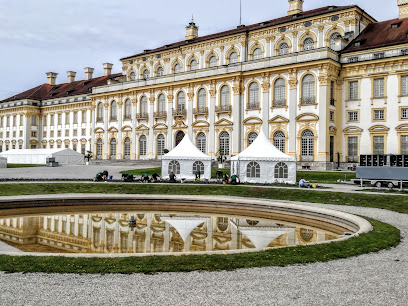
Siegestor
Discover the Siegestor, a stunning triumphal arch in Munich, symbolizing victory and resilience, surrounded by vibrant city life.
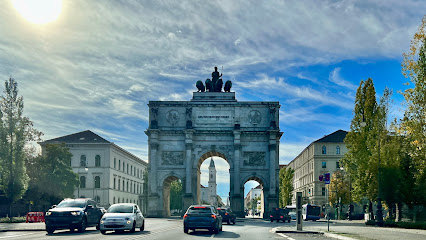
Blutenburg Castle
Discover the enchanting Blutenburg Castle in Munich, where history, stunning architecture, and exquisite dining come together in a picturesque setting.
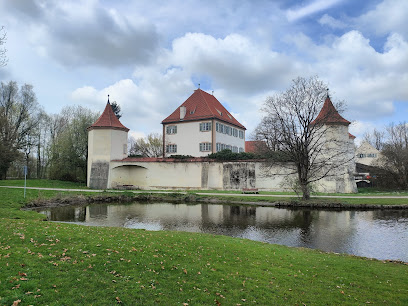
Bavaria Statue
Explore Munich's iconic Bavaria Statue, a majestic landmark symbolizing Bavarian pride and culture, offering stunning views and rich history.
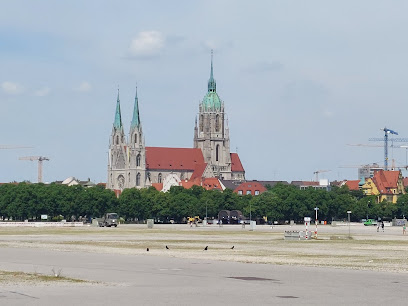
Museum Five Continents
Explore the world’s cultures through art and artifacts at the Museum Five Continents in Munich, a must-visit for global art enthusiasts.
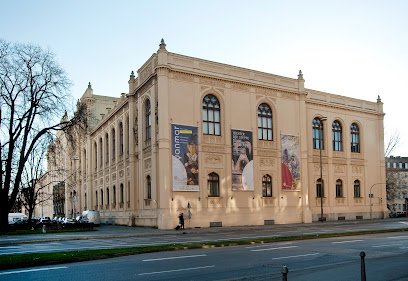
Jewish Museum
Discover the profound history and culture of Jewish life in Germany at the Jewish Museum in Munich, a must-visit tourist attraction.
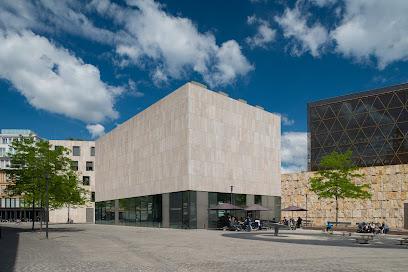
Essential places to dine
Hofbräuhaus München
Discover Bavarian tradition at Hofbräuhaus München—where great food meets vibrant culture in an iconic beer hall.
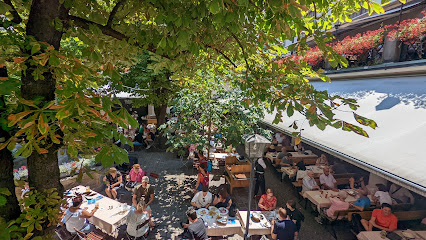
Weisses Bräuhaus im Tal
Discover authentic Bavarian cuisine and vibrant culture at Weisses Bräuhaus im Tal in the heart of Munich.
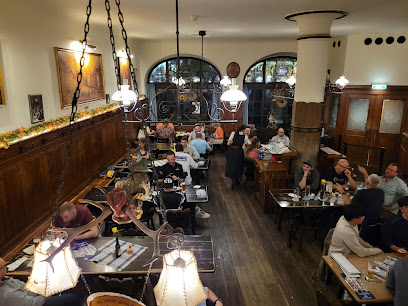
Augustiner Klosterwirt
Experience authentic Bavarian cuisine at Augustiner Klosterwirt in Munich—where tradition meets flavor in a warm and inviting setting.
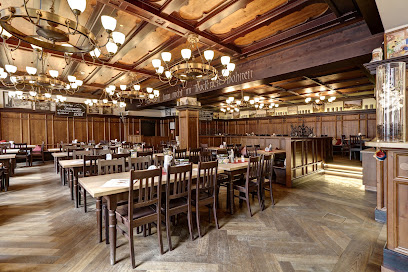
Ratskeller München
Discover authentic Bavarian flavors at Ratskeller München – where tradition meets taste in the heart of Munich.
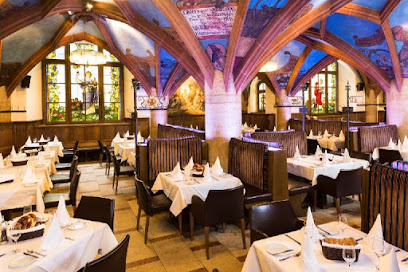
Haxnbauer
Experience authentic Bavarian cuisine at Haxnbauer in Munich - home to crispy pork knuckles and traditional German hospitality.
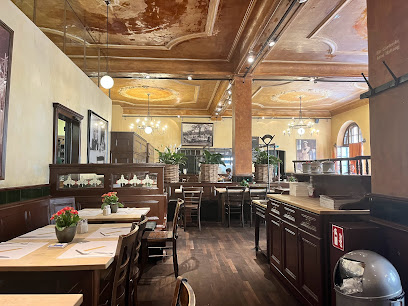
Andy's Krablergarten
Experience authentic Bavarian cuisine at Andy's Krablergarten in Munich - a must-visit for food lovers seeking local flavors.
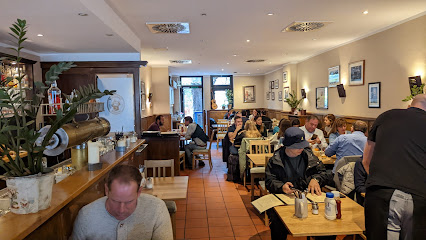
Steinheil 16
Experience authentic Bavarian cuisine at Steinheil 16 in Munich, where delicious food meets friendly service in a cozy atmosphere.
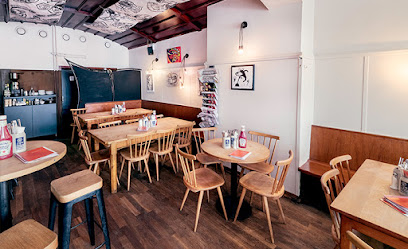
Münchner Stubn
Discover authentic Bavarian flavors at Münchner Stubn - where tradition meets taste in the heart of Munich.
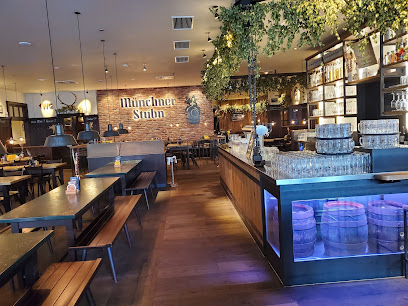
Spatenhaus at the opera
Experience authentic German cuisine with a modern twist at Spatenhaus at the Opera in Munich's cultural heart.
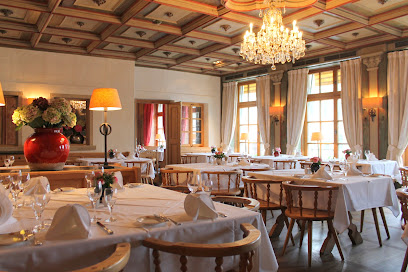
Wirtshaus in der Au
Discover the heart of Bavaria at Wirtshaus in der Au – where traditional flavors meet a vibrant atmosphere.
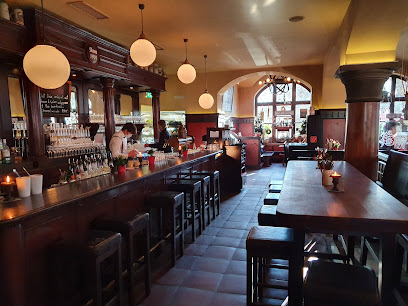
Zum Dürnbräu
Experience authentic Bavarian cuisine at Zum Dürnbräu in Munich - where tradition meets taste in every delightful dish.
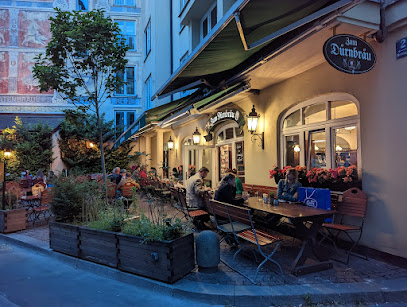
Görreshof Wirtshaus
Discover the essence of Bavaria at Görreshof Wirtshaus - where traditional flavors meet lively atmospheres in Munich's charming beer garden.
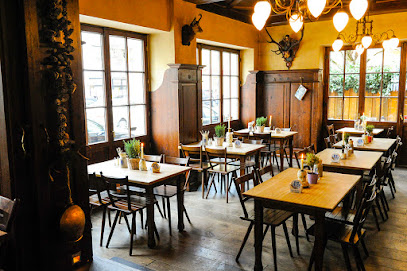
Ayinger am Platzl
Savor authentic Bavarian flavors at Ayinger am Platzl in Munich—where tradition meets taste in a family-friendly atmosphere.
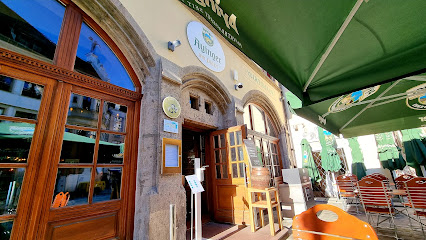
Zum Brünnstein
Savor the best of Bavarian cuisine at Zum Brünnstein in Munich—an unforgettable dining experience steeped in tradition.
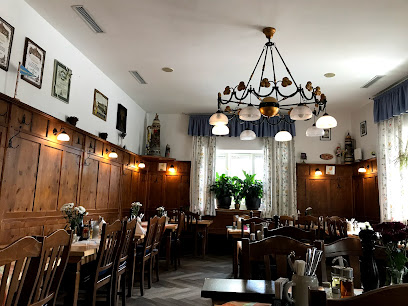
Chopan - near Gasteig
Experience authentic Afghan flavors at Chopan near Gasteig – a hidden gem in Munich's culinary scene.
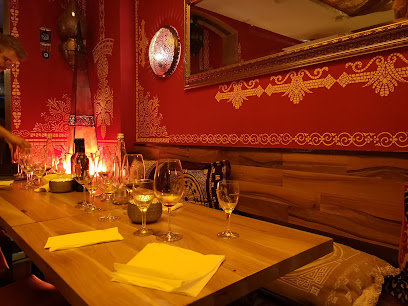
Markets, malls and hidden boutiques
Olympia Shopping Center
Explore the vibrant Olympia Shopping Center in Munich, offering over 150 shops, diverse dining, and family-friendly entertainment options.
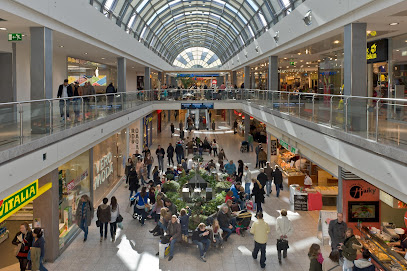
GALERIA München Marienplatz
Explore GALERIA München Marienplatz, a vibrant department store in Munich's iconic Marienplatz, offering diverse shopping options for every taste.
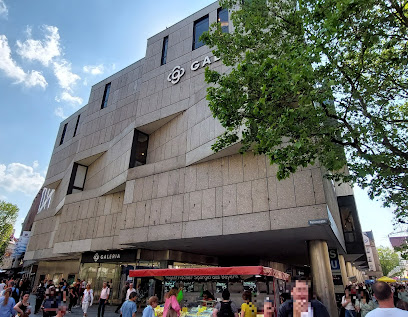
Breuninger
Discover the ultimate shopping destination in Munich at Breuninger, where fashion meets elegance in a vibrant department store.
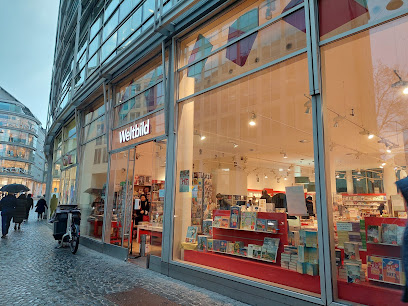
Urban Outfitters
Explore Urban Outfitters in Munich for trendy clothing, unique home goods, and a vibrant shopping experience at the heart of the city.
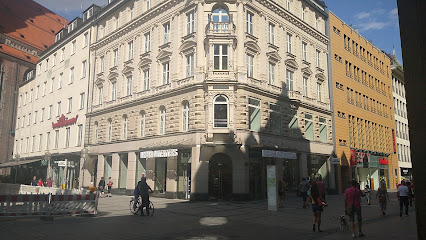
Elbenwald
Discover the enchanting world of Elbenwald, Munich's premier gift shop for fantasy lovers, featuring unique collectibles and themed merchandise.
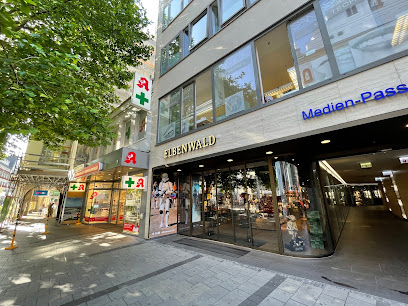
Stone Island
Discover the essence of modern men's fashion at Stone Island in Munich, where style meets function in an iconic shopping experience.
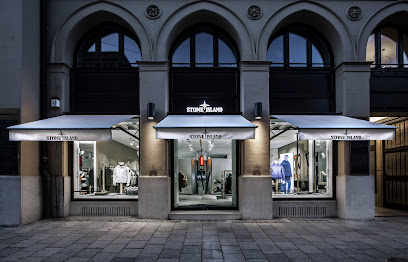
hessnatur Store Munich
Discover sustainable fashion at Hessnatur Store in Munich, where eco-friendly clothing meets style for the whole family in a vibrant shopping atmosphere.
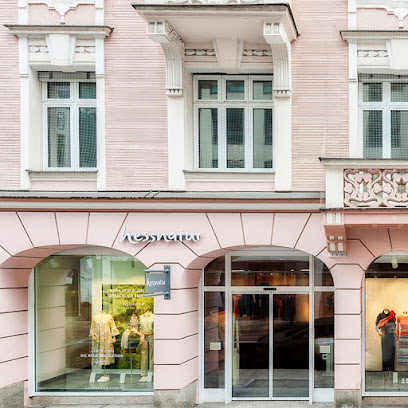
Butlers
Explore Butlers in Munich for exquisite gifts and stylish home goods that capture the essence of German craftsmanship and design.
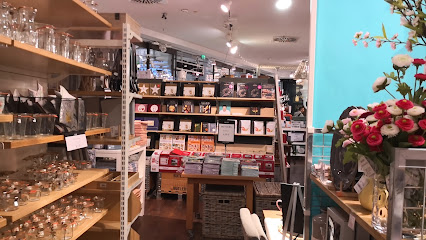
APROPOS - The Concept Store
Discover APROPOS in Munich, where fashion meets elegance with a curated selection of clothing, cosmetics, and perfumes for every style.
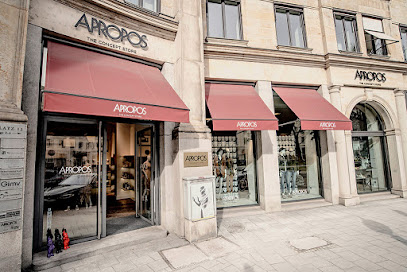
Souvenirs Flohr
Discover unique Bavarian treasures at Souvenirs Flohr, your go-to destination for authentic keepsakes in the heart of Munich.
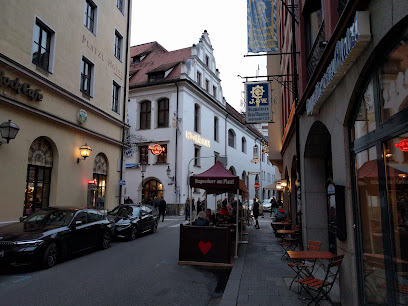
Munich Village Fashion Outlet
Explore an extensive selection of stylish clothing at Munich Village Fashion Outlet, where fashion meets affordability in the heart of Munich.
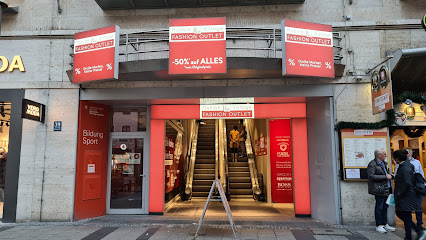
WE.RE STORE
Discover unique women's and men's fashion at WE.RE STORE in Munich, a boutique offering minimalist designs and stylish accessories.
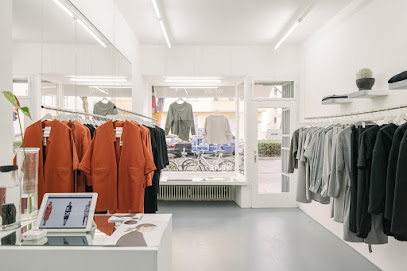
Home of Bavaria
Explore the Home of Bavaria for unique souvenirs and gifts that embody the spirit of Munich's rich cultural heritage.
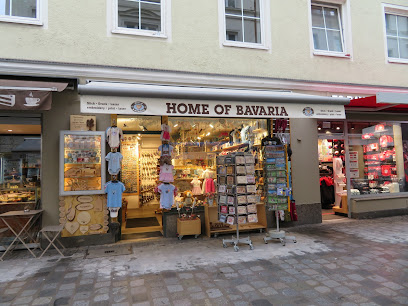
FAMOUS Exclusive Designer Outlet
Explore unbeatable deals on luxury fashion accessories at FAMOUS Exclusive Designer Outlet in Munich, the ultimate shopping destination for style-savvy travelers.
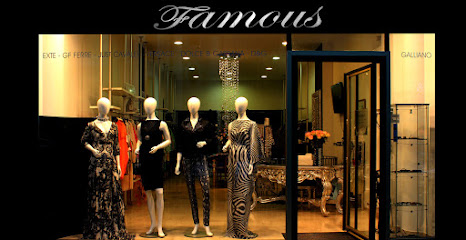
HIGH München
Explore HIGH München, a chic boutique offering exclusive women's fashion in the vibrant Altstadt-Lehel district.
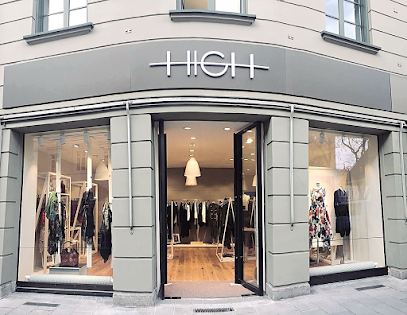
Essential bars & hidden hideouts
Pusser's
Discover the charm of Pusser's in Munich, an iconic cocktail bar offering expertly crafted drinks and vibrant live music in a welcoming atmosphere.
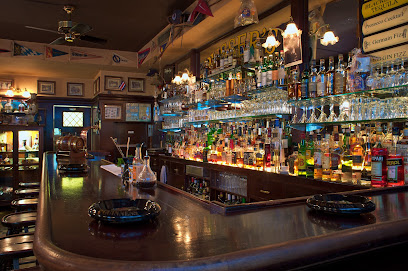
The Keg Bar
Discover the vibrant atmosphere of The Keg Bar in Munich, where great drinks and lively sports create unforgettable experiences.
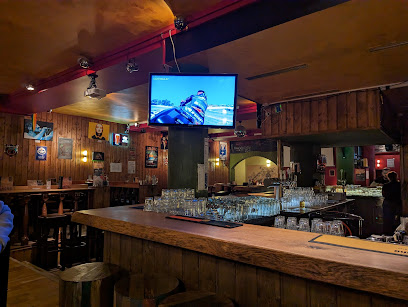
Die Goldene Bar
Experience the elegance and vibrant cocktail culture at Die Goldene Bar, a stunning Art Deco haven in the heart of Munich.
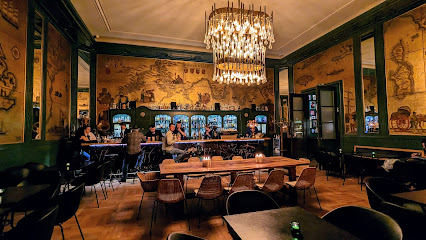
Zephyr Bar
Experience a unique blend of creativity and flavor at Munich's Zephyr Bar, where every cocktail tells a story.
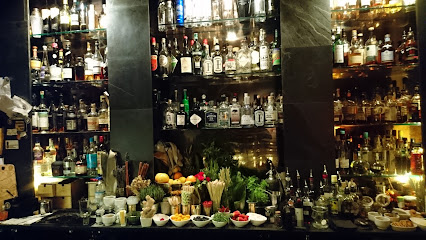
Fox Bar
Discover the lively Fox Bar in Munich, where delightful drinks and a vibrant nightlife converge for an unforgettable experience.
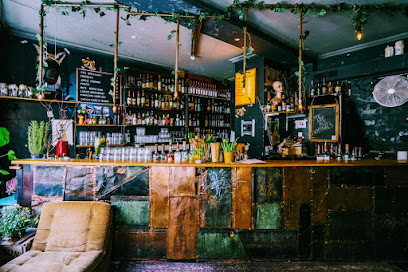
Cole & Porter Bar
Experience the vibrant atmosphere and exquisite cocktails at Cole & Porter Bar, a hidden gem in Munich's Altstadt-Lehel district.
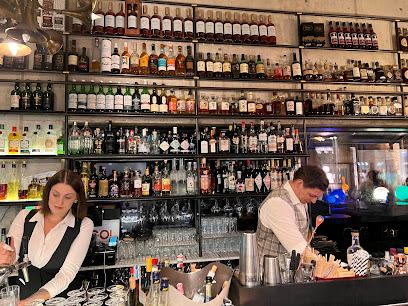
Cafe Bar Shakespeare
Discover the charm of Cafe Bar Shakespeare in Munich, where exquisite cocktails and a cozy atmosphere offer an unforgettable experience.
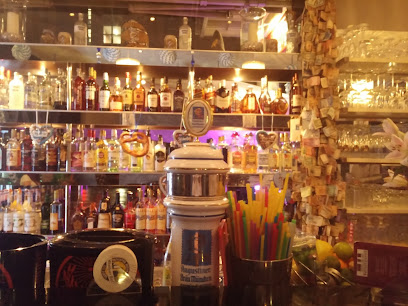
Holy Home
Experience the heart of Munich's nightlife at Holy Home, a vibrant pub with an extensive drink selection and unforgettable atmosphere.
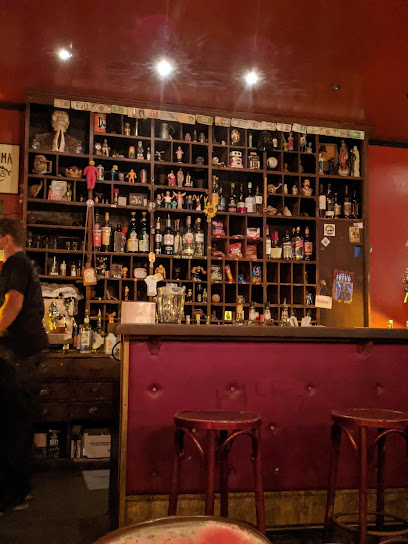
Barroom
Discover the art of cocktail making at Barroom, Munich's premier cocktail bar in the heart of Au-Haidhausen, where creativity meets taste.
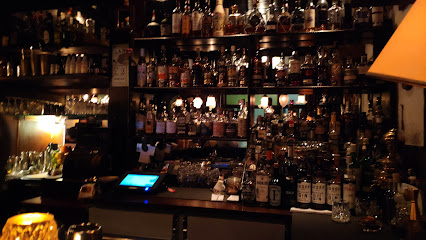
Robinson's Bar - a New York bar
Discover Robinson's Bar in Munich: a cocktail haven offering expertly crafted drinks in a cozy, vibrant setting perfect for socializing and relaxation.
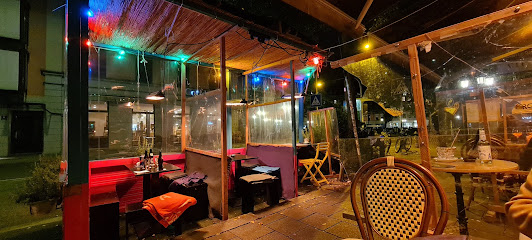
RAW Metal Bar
Experience Munich's vibrant nightlife at RAW Metal Bar, where affordable drinks and a lively atmosphere await you.
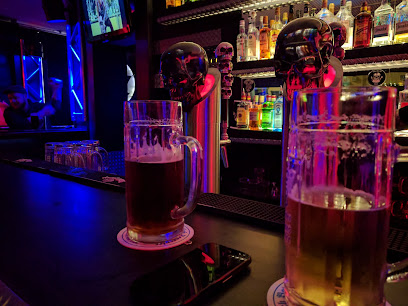
The Potting Shed Bar & Kitchen
Discover gourmet hamburgers and handcrafted cocktails at The Potting Shed Bar & Kitchen, a must-visit culinary spot in Munich's vibrant Schwabing district.
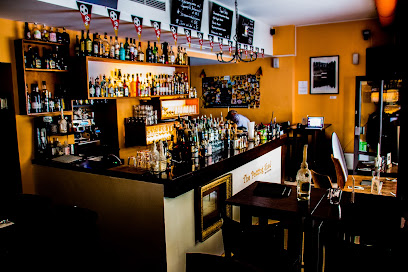
Beverly Kills Bar
Dive into the lively atmosphere of Beverly Kills Bar, Munich’s trendy nightlife hub, where eclectic drinks and vibrant energy await every night.
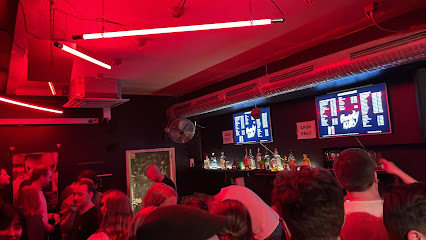
Bar 360 ° Cocktail Lounge
Experience the vibrant nightlife of Munich at Bar 360° Cocktail Lounge, where exquisite cocktails meet stunning panoramic views.
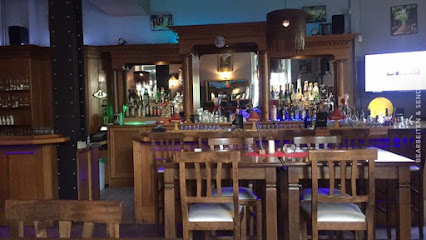
Local Phrases about Munich Countryside
-
- HelloServus
[Zer-voos] - GoodbyeServus
[Zer-voos] - YesJa
[Ya] - NoNein
[Nine] - Please/You're welcomeBitte
[Bit-te] - Thank youDanke
[Dank-eh] - Excuse me/SorryEntschuldigung
[Ent-shool-dee-goong] - How are you?Wie geht's?
[Vee gates] - Fine. And you?Mir geht's gut. Und dir?
[Meer gates goot. Oont deer] - Do you speak English?Sprechen Sie Englisch?
[Shpre-khen zee Eng-lish] - I don't understandIch verstehe nicht
[Ikh fer-shtay-eh neekt]
- HelloServus
-
- I'd like to see the menu, pleaseIch würde gerne die Speisekarte sehen, bitte
[Ikh vur-deh geh-ren-eh dee Shay-zeh-kar-teh zay-en, bit-teh] - I don't eat meatIch esse kein Fleisch
[Ikh ess-eh kine Fly-sh] - Cheers!Prost!
[Prohst] - I would like to pay, pleaseIch würde gerne bezahlen, bitte
[Ikh vur-deh geh-ren-eh bez-al-en, bit-teh]
- I'd like to see the menu, pleaseIch würde gerne die Speisekarte sehen, bitte
-
- Help!Hilfe!
[Hil-feh] - Go away!Geh weg!
[Geh vehg] - Call the Police!Rufen Sie die Polizei!
[Roo-fen zee dee Po-lee-tsay] - Call a doctor!Rufen Sie einen Arzt!
[Roo-fen zee i-nen arts-t] - I'm lostIch habe mich verirrt
[Ikh hah-beh meekh fer-eert] - I'm illIch bin krank
[Ikh bin krank]
- Help!Hilfe!
-
- I'd like to buy...Ich möchte ... kaufen
[Ikh merkhte ... kow-fen] - I'm just lookingIch schaue nur
[Ikh shou-eh noor] - How much is it?Wie viel kostet das?
[Vee feel koss-teht dass] - That's too expensiveDas ist zu teuer
[Dass ist tso toy-er] - Can you lower the price?Können Sie den Preis senken?
[Kern-en zee den Preis zank-en]
- I'd like to buy...Ich möchte ... kaufen
-
- What time is it?Wie viel Uhr ist es?
[Vee feel oor ist es] - It's one o'clockEs ist ein Uhr
[Es ist iyn oor] - Half past (10)Halb (10)
[Halb (tsen)] - MorningMorgen
[Mor-gen] - AfternoonNachmittag
[Nah-mit-tahg] - EveningAbend
[Ah-bent] - YesterdayGestern
[Ges-tern] - TodayHeute
[Hoy-teh] - TomorrowMorgen
[Mor-gen] - 1Eins
[I-ns] - 2Zwei
[Tsvay] - 3Drei
[Drey] - 4Vier
[Feer] - 5Fünf
[Foonf] - 6Sechs
[Zeks] - 7Sieben
[Zee-ben] - 8Acht
[Akht] - 9Neun
[Noyn] - 10Zehn
[Tsen]
- What time is it?Wie viel Uhr ist es?
-
- Where's a/the...?Wo ist ein/das...?
[Vo ist iyn/dass] - What's the address?Was ist die Adresse?
[Vas ist dee A-dre-say] - Can you show me (on the map)?Können Sie mir (auf der Karte) zeigen?
[Kern-en zee meer (ouf dare Kar-teh) tsay-gen] - When's the next (bus)?Wann kommt der nächste (Bus)?
[Vann kommt dare nekhs-teh (Boos)] - A ticket (to ....)Eine Fahrkarte (nach ....)
[I-nuh Fah-kar-teh (nahkh)]
- Where's a/the...?Wo ist ein/das...?
History of Munich Countryside
-
The Munich Countryside has roots deeply embedded in the medieval era. The region saw the establishment of small villages and farms as early as the 8th century. These early settlers were primarily involved in agriculture and the development of local trade routes that connected them to larger cities like Munich. The remnants of medieval architecture, including fortified farmhouses and Romanesque churches, still dot the landscape, offering a glimpse into the area's rich past.
-
The Wittelsbach family, one of Bavaria's most influential dynasties, had a significant impact on the Munich Countryside. Beginning their rule in the 12th century, they established numerous castles and hunting lodges in the area. Notable sites include Blutenburg Castle and the Schleissheim Palace complex, which served as summer residences and hunting retreats. These structures not only reflect the architectural styles of their time but also the opulence and power of the Wittelsbachs.
-
In the 18th and 19th centuries, the Munich Countryside underwent significant changes due to the Bavarian Agricultural Revolution. Innovations in farming techniques and the introduction of new crops led to increased productivity and the transformation of rural life. The establishment of agricultural schools and societies helped educate farmers and spread new methods. This period also saw the growth of local markets and fairs, some of which continue to this day, showcasing the region's agricultural heritage.
-
The Munich Countryside was not immune to the impacts of World War II. The region experienced bombings and military movements, leaving scars on its landscapes and communities. Post-war, the countryside saw an influx of refugees and displaced persons, which reshaped its demographic and cultural fabric. Reconstruction efforts in the following decades focused on restoring historical sites and rebuilding communities, preserving the rural charm while integrating modern amenities.
-
Today, the Munich Countryside is renowned for its vibrant cultural festivals and traditions. Events like the Dachauer Volksfest and the Erntedankfest celebrate the region's agricultural roots and community spirit. Traditional Bavarian music, dance, and cuisine are integral parts of these gatherings, providing both locals and visitors with a rich cultural experience. Additionally, craft markets and historical reenactments allow people to engage with the region's history and traditions in an immersive way.
Munich Countryside Essentials
-
Munich Countryside can be reached via Munich's Franz Josef Strauss International Airport (MUC), which is well-connected to major cities worldwide. From the airport, you can take a train, bus, or taxi to reach the countryside. The S-Bahn (S1 or S8) provides a direct connection from the airport to Munich's main train station (Hauptbahnhof), from where regional trains and buses operate to various destinations in the Munich Countryside.
-
The Munich Countryside is well-served by an efficient public transportation system, including regional trains, buses, and trams. The Deutsche Bahn (DB) regional trains connect Munich with surrounding towns and villages. Renting a car is a convenient option for exploring remote areas and scenic routes at your own pace. Bicycling is also popular, with numerous well-marked bike paths.
-
The official currency is the Euro (€). Credit and debit cards are widely accepted in hotels, restaurants, and shops. However, it is advisable to carry some cash, especially when visiting smaller towns and rural areas where card payment options might be limited. ATMs are available in most towns and villages, allowing easy cash withdrawals.
-
The Munich Countryside is generally very safe for tourists. However, it is prudent to take standard precautions such as keeping an eye on your belongings and avoiding poorly lit areas at night. Some areas in larger towns might have occasional petty crime, but there are no specific high-crime neighborhoods targeting tourists.
-
In case of an emergency, dial 112 for immediate assistance, which connects you to police, fire, and medical services. Hospitals and clinics are available in larger towns and cities within the countryside. It is recommended to have travel insurance that covers medical emergencies. For minor health issues, pharmacies (Apotheken) are widely available.
-
Fashion: Do dress comfortably and appropriately for the weather. Avoid overly casual attire when dining in upscale restaurants. Religion: Do respect local customs, especially when visiting churches and religious sites. Public Transport: Do validate your ticket before boarding and be respectful to fellow passengers. Don't eat or drink on public transport. Greetings: Do greet people with a friendly 'Guten Tag' or 'Grüß Gott'. A handshake is a common form of greeting. Eating & Drinking: Do try local Bavarian delicacies and beer. Don’t forget to say 'Prost' (cheers) before drinking with others.
-
To experience Munich Countryside like a local, visit traditional Bavarian beer gardens and try local dishes such as Weißwurst (white sausage) and Brezen (pretzels). Participate in local festivals like Oktoberfest and Christkindlmarkt (Christmas markets). Explore less touristy villages and interact with locals to learn about their way of life. Hiking in the Bavarian Alps and visiting the lakes such as Tegernsee and Schliersee offer a true taste of the local natural beauty.
Nearby Cities to Munich Countryside
-
Things To Do in Innsbruck
-
Things To Do in Kitzbühel
-
Things To Do in Salzburg
-
Things To Do in Zell am See
-
Things To Do in St. Anton am Arlberg
-
Things To Do in Nuremberg
-
Things To Do in Bregenz
-
Things To Do in Dornbirn
-
Things To Do in Bad Gastein
-
Things To Do in Hallstatt
-
Things To Do in Rothenburg ob der Tauber
-
Things To Do in Schellenberg
-
Things To Do in Ruggell
-
Things To Do in Mauren
-
Things To Do in Eschen













